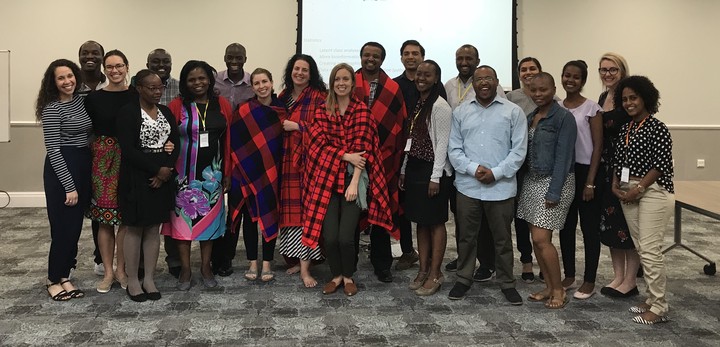 Closing day of the GINGER London workshop
Closing day of the GINGER London workshopAbstract
To date, advancements in neuropsychiatric genetics research in sub-Saharan Africa have been limited by low capacity—funding availability, appropriate infrastructure, and qualified researchers are under-represented in African institutions compared with counterparts in high-income countries (HICs). To improve representation of African institutions in neuropsychiatric genetics research, researchers and funding bodies should prioritise projects involving collaborations between institutions in HICs and low- and middle-income countries (LMICs) that contain a capacity-building component. The Global Initiative for Neuropsychiatric Genetics Education in Research (GINGER) programme seeks to address these limitations. GINGER is a collaboration between the Stanley Center for Psychiatric Research at the Broad Institute of Massachusetts Institute of Technology and the Harvard T H Chan School of Public Health, and several academic institutions in sub-Saharan Africa (University of Addis Ababa, Ethiopia; University of Cape Town and Stellenbosch University, South Africa; Moi University and the Kenya Medical Research Institute, Kenya; and Makerere University, Uganda). Comprising 17 investigators from these countries, GINGER aims to enhance the capacity of neuropsychiatric genetics research in Africa by training early-career researchers in genetics analysis, psychiatric phenotyping, epidemiology, bioinformatics, biostatistics, ethics, and manuscript and grant writing.